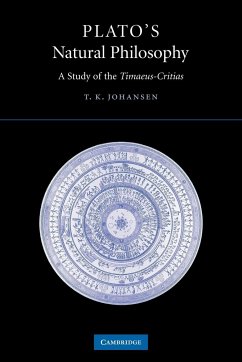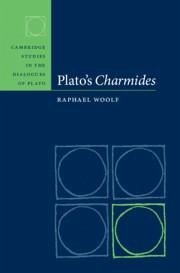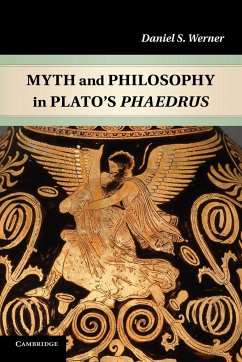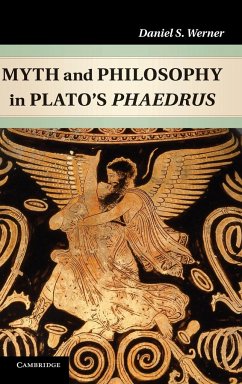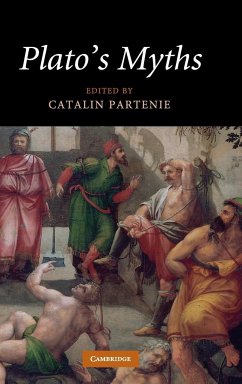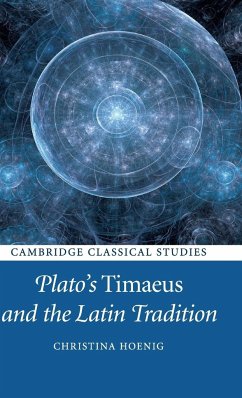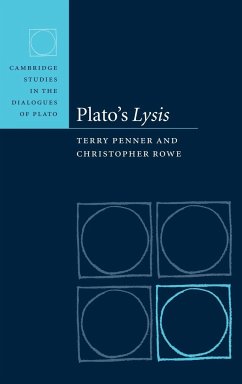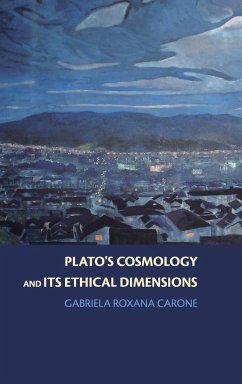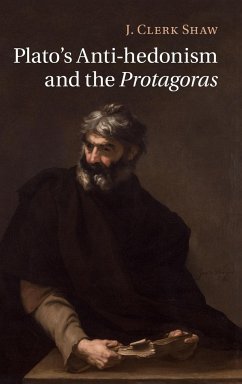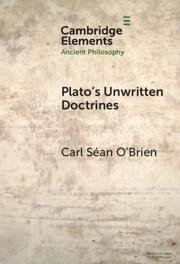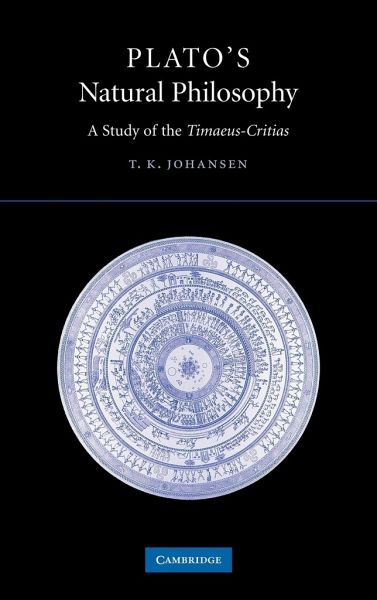
Plato's Natural Philosophy
A Study of the Timaeus-Critias
Versandkostenfrei!
Versandfertig in 1-2 Wochen
109,99 €
inkl. MwSt.
Weitere Ausgaben:

PAYBACK Punkte
55 °P sammeln!
Short description/annotationExamines the unifying teleological theme in Plato's dialogue the Timaeus-Critias.Main descriptionPlato's dialogue the Timaeus-Critias presents two connected accounts, that of the story of Atlantis and its defeat by ancient Athens and that of the creation of the cosmos by a divine craftsman. This book offers a unified reading of the dialogue. It tackles a wide range of interpretative and philosophical issues. Topics discussed include the function of the famous Atlantis story, the notion of cosmology as 'myth' and as 'likely', and the role of God in Platonic cosmology...
Short description/annotation
Examines the unifying teleological theme in Plato's dialogue the Timaeus-Critias.
Main description
Plato's dialogue the Timaeus-Critias presents two connected accounts, that of the story of Atlantis and its defeat by ancient Athens and that of the creation of the cosmos by a divine craftsman. This book offers a unified reading of the dialogue. It tackles a wide range of interpretative and philosophical issues. Topics discussed include the function of the famous Atlantis story, the notion of cosmology as 'myth' and as 'likely', and the role of God in Platonic cosmology. Other areas commented upon are Plato's concepts of 'necessity' and 'teleology', the nature of the 'receptacle', the relationship between the soul and the body, the use of perception in cosmology, and the work's peculiar monologue form. The unifying theme is teleology: Plato's attempt to show the cosmos to be organised for the good. A central lesson which emerges is that the Timaeus is closer to Aristotle's physics than previously thought.
Table of contents:
Introduction: Plato's tales of teleology; 1. What is the Timaeus-Critias about(?)33;; 2. The status of the Atlantis story; 3. The status of Timaeus' account; 4. Teleology and craftsmanship; 5. Necessity and teleology; 6. Space and motion; 7. Body, soul and tripartition; 8. Perception and cosmology; 9. Dialogue and dialectic; Epilogue.
Examines the unifying teleological theme in Plato's dialogue the Timaeus-Critias.
Main description
Plato's dialogue the Timaeus-Critias presents two connected accounts, that of the story of Atlantis and its defeat by ancient Athens and that of the creation of the cosmos by a divine craftsman. This book offers a unified reading of the dialogue. It tackles a wide range of interpretative and philosophical issues. Topics discussed include the function of the famous Atlantis story, the notion of cosmology as 'myth' and as 'likely', and the role of God in Platonic cosmology. Other areas commented upon are Plato's concepts of 'necessity' and 'teleology', the nature of the 'receptacle', the relationship between the soul and the body, the use of perception in cosmology, and the work's peculiar monologue form. The unifying theme is teleology: Plato's attempt to show the cosmos to be organised for the good. A central lesson which emerges is that the Timaeus is closer to Aristotle's physics than previously thought.
Table of contents:
Introduction: Plato's tales of teleology; 1. What is the Timaeus-Critias about(?)33;; 2. The status of the Atlantis story; 3. The status of Timaeus' account; 4. Teleology and craftsmanship; 5. Necessity and teleology; 6. Space and motion; 7. Body, soul and tripartition; 8. Perception and cosmology; 9. Dialogue and dialectic; Epilogue.





